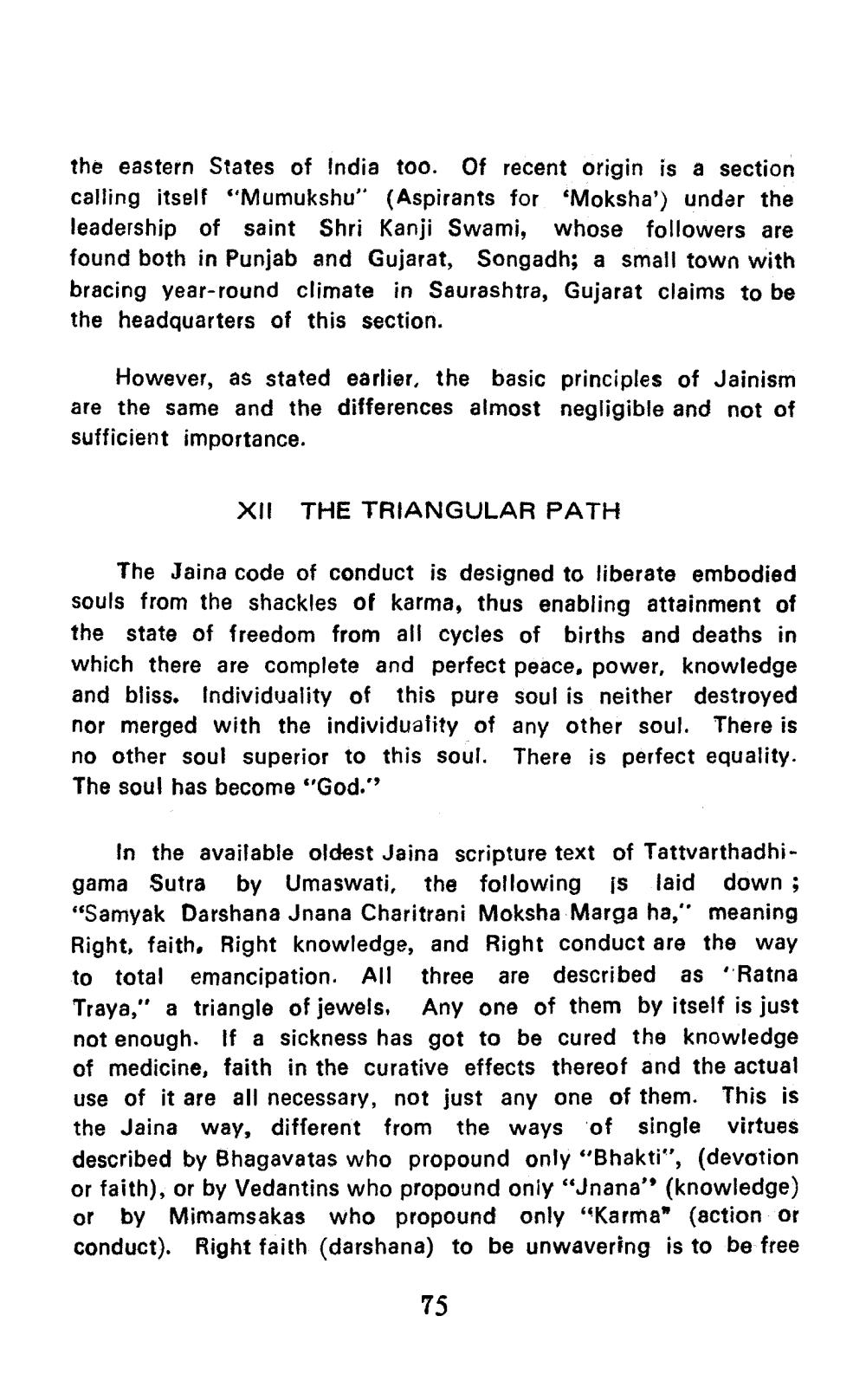________________
the eastern States of India too. Of recent origin is a section calling itself "Mumukshu" (Aspirants for 'Moksha') under the leadership of saint Shri Kanji Swami, whose followers are found both in Punjab and Gujarat, Songadh; a small town with bracing year-round climate in Saurashtra, Gujarat claims to be the headquarters of this section.
However, as stated earlier, the basic principles of Jainism are the same and the differences almost negligible and not of sufficient importance.
XII THE TRIANGULAR PATH
The Jaina code of conduct is designed to liberate embodied souls from the shackles of karma, thus enabling attainment of the state of freedom from all cycles of births and deaths in which there are complete and perfect peace, power, knowledge and bliss. Individuality of this pure soul is neither destroyed nor merged with the individuality of any other soul. There is no other soul superior to this soul. There is perfect equality. The soul has become "God."
In the available oldest Jaina scripture text of Tattvarthadhigama Sutra by Umaswati, the following ¡S laid down; "Samyak Darshana Jnana Charitrani Moksha Marga ha," meaning Right, faith, Right knowledge, and Right conduct are the way to total emancipation. All three are described as 'Ratna Traya," a triangle of jewels. Any one of them by itself is just not enough. If a sickness has got to be cured the knowledge of medicine, faith in the curative effects thereof and the actual use of it are all necessary, not just any one of them. This is the Jaina way, different from the ways of single virtues described by Bhagavatas who propound only "Bhakti", (devotion or faith), or by Vedantins who propound only "Jnana" (knowledge) or by Mimamsakas who propound only "Karma" (action or conduct). Right faith (darshana) to be unwavering is to be free
75




